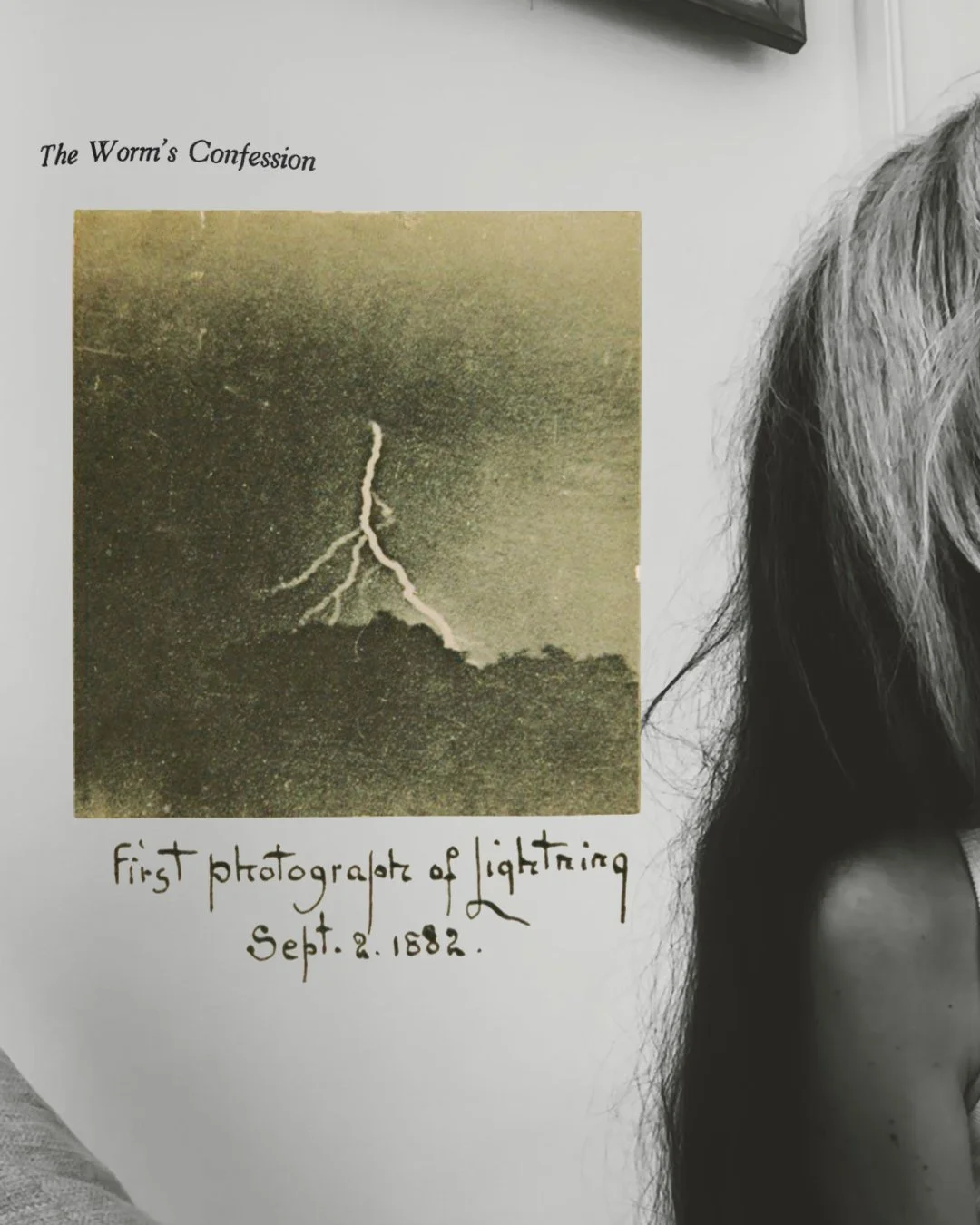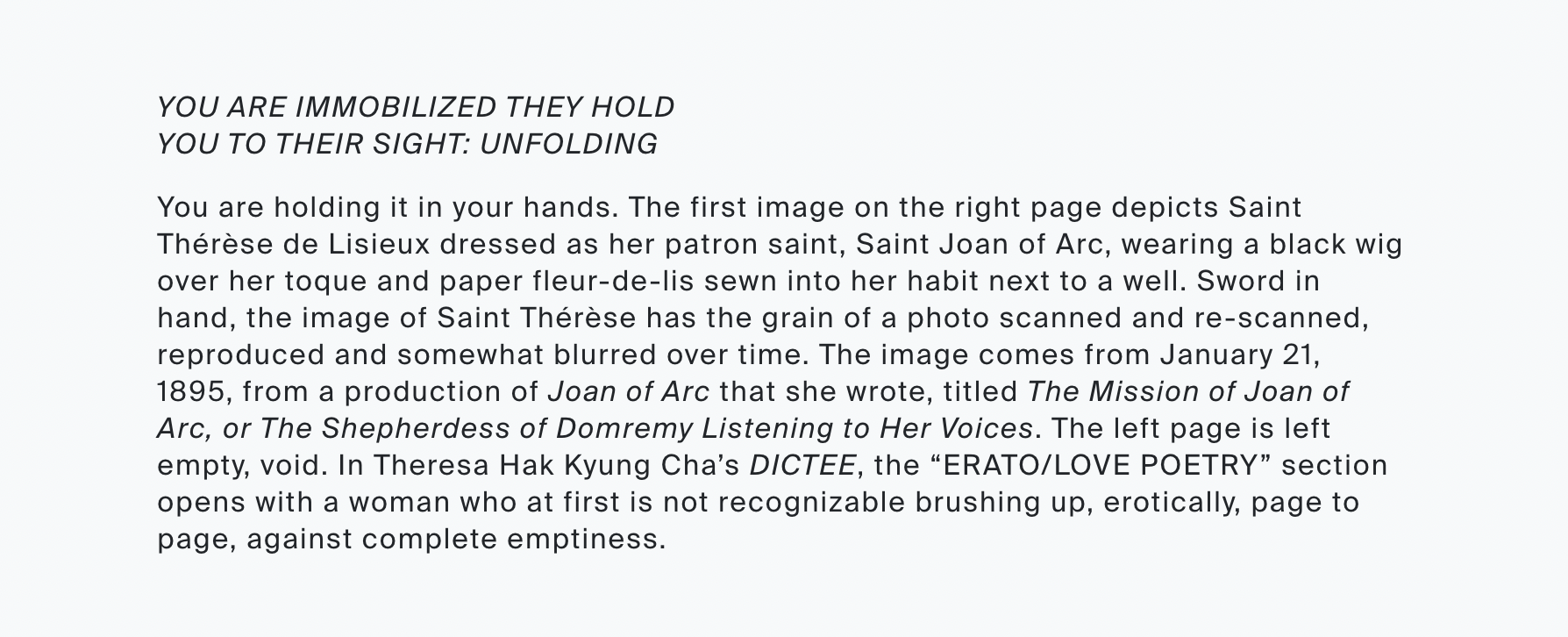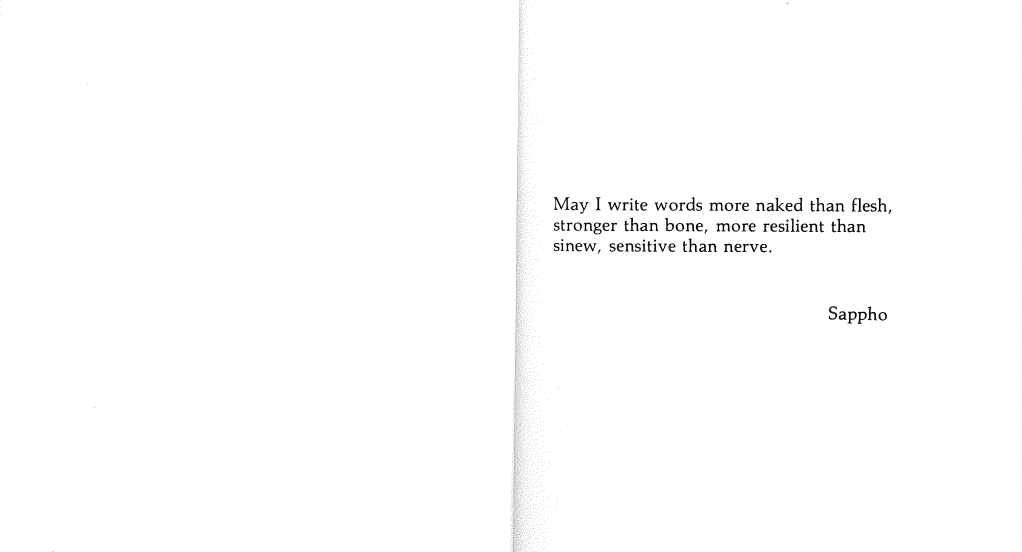In India, they write the title of a book at the end.
— Eliot Weinberger, “Dream of India”
1
A golden oldie of sorts, this song by Sharon Van Etten titled “Your Love Is Killing Me”— with its demands that double as supplications. As in “Break my legs so I won't walk to you” and “Cut my tongue so I can't talk to you” and “Burn my skin so I can't feel you” and “Stab my eyes so I can't see'.” The end rhymes are gratuitous; the long vowels extended through vocals.
Van Etten’s voice rises and falls but goes nowhere, for there is nowhere to go: the song, itself, stipulates the field. She sings it hauntingly: “You tell me that you like it / Your love is killing me.” The extension of the long-i sound in “like” pulls its bow across the lyrics that follow. These two lines — a morsel, merely, with so much happening in the breath between them, a fingertip touching the keys differently, pressing down on the pronouns with varying emphases, first the it then the your then the me, before going back to play the monosyllabic verbs: tell, like, love, kill.
2
“Rainer Maria Rilke hesitates whether to abandon a bar of soap in a hotel room,” Dennis Silk recollects in “The Marionette Theater.” He leaves this fragment tucked between the abandonment of animism and Gilles de Rais’ confession, which leads the Bishop of Nantes to cover the crucifix with a protective piece of cloth.
3
In 1895, Oscar Wilde was on trial for “lewd and immoral behavior.” At one point in the interrogation, the Court accused him of writing ‘homosexual’ ‘nonfiction’; one of his letters to Lord Alfred Douglas was submitted as evidence. A snapshot of that moment in time, as preserved in archives:
COURT: Where was Lord Alfred Douglas staying when you wrote that letter to him?
WILDE: At the Savoy, and I was at the Babbacombe.
COURT: It was a letter in answer to something he had sent you?
WILDE: Yes, a poem.
COURT: Mr. Wilde, why should a man your age address a boy nearly twenty years younger as ‘My Own Boy’?
WILDE: I was fond of him; I have always been fond of him.
COURT: Do you adore him?
WILDE: No, but I have always liked him. I think it is a beautiful letter. It is a poem. I was not writing an ordinary letter. You might as well cross-examine me as to whether a sonnet of Shakespeare were proper.
COURT: Apart from art, Mr. Wilde?
WILDE: I cannot answer apart from art.
4
“It is you who know how to hear it in the music so late in the night,” Theresa Hak Kyung Cha wrote in the ‘Erato: Love Poetry’ section of Dictee/Diptych.
“Depression is to me as daffodils were to Wordsworth,” Philip Larkin admitted to John Haffenden.
Gerald Manley Hopkins only published a single poem during his life. Ralph Ellison’s follow-up novel to Invisible Man burnt up in a fire and was never brought back to life. Joan Mitchell painted La Vie En Rose (1979) to mark the end of her long, amorous relationship with Jean-Peal Riopelle, who absconded with their dogsitter.
5
6
In a notebook entry dated 1783, Joseph Joubert said those who want to know “how thought functions” should “read the poets,” for poets are the types of humans who formed language and it is “up to philosophers to reform them.”
A poem by Emily Skillings titled “Emily”; a line that struck me: “I do the things I have chosen in the lack.”
“What will we do to disappear?” said Maurice Blanchot, reading aloud the essay he’d written about how writing creates the author while also destroying him.
J. L. Austin adjusted his trousers and trolled himself in the mirror of the library restroom. Look, he said: “When you say ‘It’s real’ — what exactly are you saying it isn’t?”
7
Joking about alliterative poop and pigeons with Radu only to pause at the end of “Throw the Emptiness Out of Your Arms: Rilke’s Doctrine of Nonposessive Love,” an essay by William Gass that concludes by quoting a poem sent by Rainer Maria Rilke to Lou Andreas-Salome:
Put my eyes out: I can still see;
slam my ears shut: I can still hear,
walk without feet to where you were,
and tongueless, speak you into being.
Snap off my arms: I’ll hold you hard
in my heart’s longing like a fist;
halt that, my brain will do its beating,
and if you set this mind of mine aflame,
then on my blood I’ll carry you away.
And so, to quote Alexander Pope: “the sound must seem an echo to the sense.”
*
Emily Skillings, “Emily”
J. L. Austin, Sense and Sensibilia
Joan Mitchell, La Vie En Rose (1979)
Sharon Van Etten, “Your Love Is Killing Me”
Theresa Hak Kyung Cha, Dictee/Diptych
William Gass, “Throw the Emptiness Out of Your Arms: Rilke’s Doctrine of Nonposessive Love”


